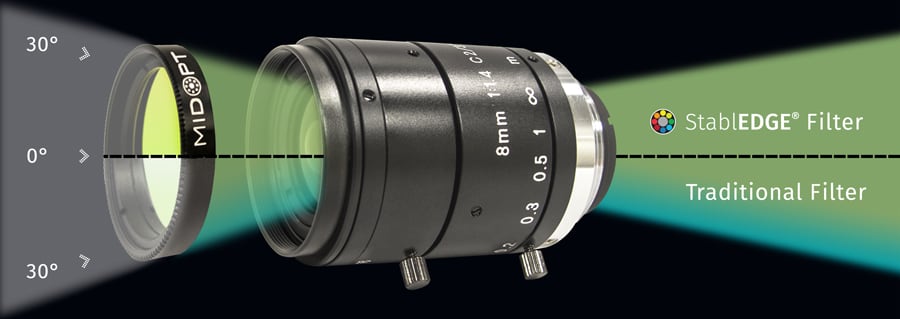
You have come to the right spot if looking for gifts ideas for photographers. We'll show you how to buy the best tools, stationery, or software for photographers on any budget. Editing photos is almost as important than taking them. Lightroom is one of the most popular photo editing software. Adobe's Creative Cloud suite is the industry standard and the most complete. Whether you're looking for a camera-shaped stationery or a mini tripod, you're sure to find a gift that will make someone's life easier.
Lensbaby
Lensbaby's latest products can be a great gift for a friend who is just starting out or someone who wants to get better at photography. The lenses can create creative depth, soft focus, smoothbokeh, and creative depth of fields. Lensbaby offers many additional lenses including the Multi Creative Filter System.

Mini tripod
Mini tripods are a great gift choice, regardless of whether you're purchasing it as a present for an amateur photographer or professional. This accessory is small enough to be carried around by one person, but sturdy enough to support a full-size DSLR or point-and-shoot camera. It is compatible with a variety of cameras, including smartphones and point-and-shoots. And while tripods are essential equipment for professional photographers, mini tripods are perfect for point-and-shoot cameras and even cell phones.
Photo protection case
You can store your expensive equipment in a protective case. Protective cases are essential for photographers, as fragile equipment requires extra protection. Good quality rolling camera cases should have weatherproof exteriors as well as foam padding. Photo protection cases are designed to protect your camera, but still allow you to explore and create new ways of using it. It is a wonderful gift idea for photographers to have a camera case that can protect it from dust and other elements.
Stationery shaped like a camera
You can give your photographer stationery in the form of a camera if he loves to take pictures. These stationery items have a purpose and can be used as a way to organize his work. These stationery items come in many sizes and shapes. They can be printed on paper or fabric. Photographers will love these gifts. These stationery items are a great way to keep their memories alive.

Film stock
Film stock is a great gift for photographers who love to take pictures. Buying film in the wrong format will probably sit on the shelf, unused. A bulk film loading machine can simplify the process and can even be done in daylight. Black and white is the best film to purchase. A bulk film loader makes a great gift for someone who prefers monochrome films.
FAQ
What is the best camera for beginners?
The best camera choice for beginners is determined by your budget, skills, and needs.
For example, if you're looking to save money, you might choose a point-and-shoot digital camera. These cameras aren't as versatile as they look, but they provide good quality.
Digital Single Lens Reflex (DSLR) cameras have interchangeable lenses that allow you to shoot various types of shots. While they are more expensive than point and shoots, they offer much more flexibility.
For those new to photography, a beginner's kit is a great place to start. The package includes everything you need: a camera, lens, memory cards, tripod, flash and a camera body.
Make sure to purchase extra batteries.
Is digital photography hard?
Digital photography can be difficult. Learning how to properly use the tools takes effort and time. It is important to be familiar with the settings that are best for each type of shot. It is best to practice what you have learned. Practice makes perfect.
What Lenses Should I Use
Most beginners will ask this question: "Which lens should I buy?" It's a tough decision since there are so many options available.
The good news is you don't always need to buy a different lens with every purchase of a camera. You can simply add lenses later.
There are three types possible lenses.
-
Wide Angle Lens (14mm-24mm): These lenses offer a wide field of view that allows you to capture more detail. You can zoom in, but not lose image quality.
-
Normal/Standard zoom lens (28mm -70mm). These lenses allow the user to adjust focal lengths while still maintaining good image quality.
-
Telephoto Zoom Lens (70mm-200mm): These lenses can be used to capture distant subjects. They allow you to focus on your subject despite the fact that they may seem small in the frame.
These lenses can be combined in a variety of ways to create new effects. You can use a normal lens for close-up detail and switch to a zoom lens to capture distant objects.
Cameras for Sale
There are many online places where you can purchase cameras. We recommend purchasing from a trusted retailer such as B&H Photo Video. They have knowledgeable staff that can help answer any questions you may have.
B&H ships quickly and securely to make it easy for you to get your order to your door.
This video will help you learn more about buying cameras.
Statistics
- By March 2014, about 3 million were purchased monthly, about 30 percent of the peak sales total. (en.wikipedia.org)
- This article received 13 testimonials, and 100% of readers who voted found it helpful, earning it our reader-approved status. (wikihow.com)
- There are people out there who will pick at flaws they can only see in 100% crops of your photos. (wikihow.com)
- That's the easiest way to get blurry photos 100% of the time. (photographylife.com)
External Links
How To
What are the requirements to be a good photographer?
Basic skills for any job in photography include artistic ability, technical knowledge, and business acumen.
Technical knowledge includes understanding exposure, camera functions, lens type, film speeds, and developing techniques.
It is important to have artistic talent. This includes understanding composition, lighting, posing, and how to use Photoshop.
Business acumen is about managing time, budgeting, time management, and dealing effectively with clients.
You should be interested in photography as a hobby from an early age if you wish to be a professional photographer.
Online courses or classes in school can help you learn about photography.
There are many books that cover all aspects photography.
Not only is it important to study photography, but it is also important to develop your style.
This will enable you to be different from other people in the field.
Photography has changed over the years. In the past cameras such as the Kodak Instamatic, Polaroid instant and other cameras were used.
Digital cameras are becoming more popular than ever. Today, the majority of photographers use their smartphones to shoot photos.
You can get a smartphone that captures high-quality pictures, but if photography is your passion, you must invest in a DSLR camera (Digital Single Lens Reflex).
The DSLR lets you control every aspect your photo including shutter speed and aperture, ISO sensitivity, white-balance, focus, and white balance.
These features enable you to create stunning photos and different effects.
These controls are also available to adjust the mood of your photograph.
For example, you could make your subject appear blurry by using a fast shutter speed.
You can also make them appear more mobile by increasing the light that enters the camera.
Another way to change the mood of your image is to adjust the color temperature of the scene.
You might increase the red value of the picture if there's a lot blue light.
To begin with, you may find it difficult to know which direction to point your camera.
Once you learn the basics, however, you'll soon realize it's not that difficult.
It's actually easier than you think!
You will likely start off by only shooting landscapes and close-up shots.
Don't worry, as you get more experience, you'll be able capture everything from abstracts to portraits.
Once you are proficient in the basics, you will be able to move on to more difficult subjects.
Here are some tips to help you get started:
-
Select a location that is convenient. You should choose somewhere you feel comfortable and relaxed.
-
Look for something to photograph. You should look for unusual or special objects to photograph.
-
Take plenty of practice pictures. Practice makes perfect!
-
Experimentation with different angles is possible. Different angles are best depending on what goal you're trying to reach.
-
Use different lenses. Different lenses offer different perspectives.
-
You can also shoot in low-light conditions. It can be difficult for you to photograph in bright sunlight.
-
Practice framing your shot. Photographing an image is not complete without framing.
-
Learn how to use your camera settings. Experimenting with your camera settings is the best way for you to improve your photographs.
-
Keep learning new techniques. Photography is a vast subject. Visit local galleries, museums, libraries, and other venues to find out more.
-
Read books and magazines. Everything you need to know about photography can be found in books and magazines.
-
Join a club. Clubs for photographers often organize events that encourage members share their work.